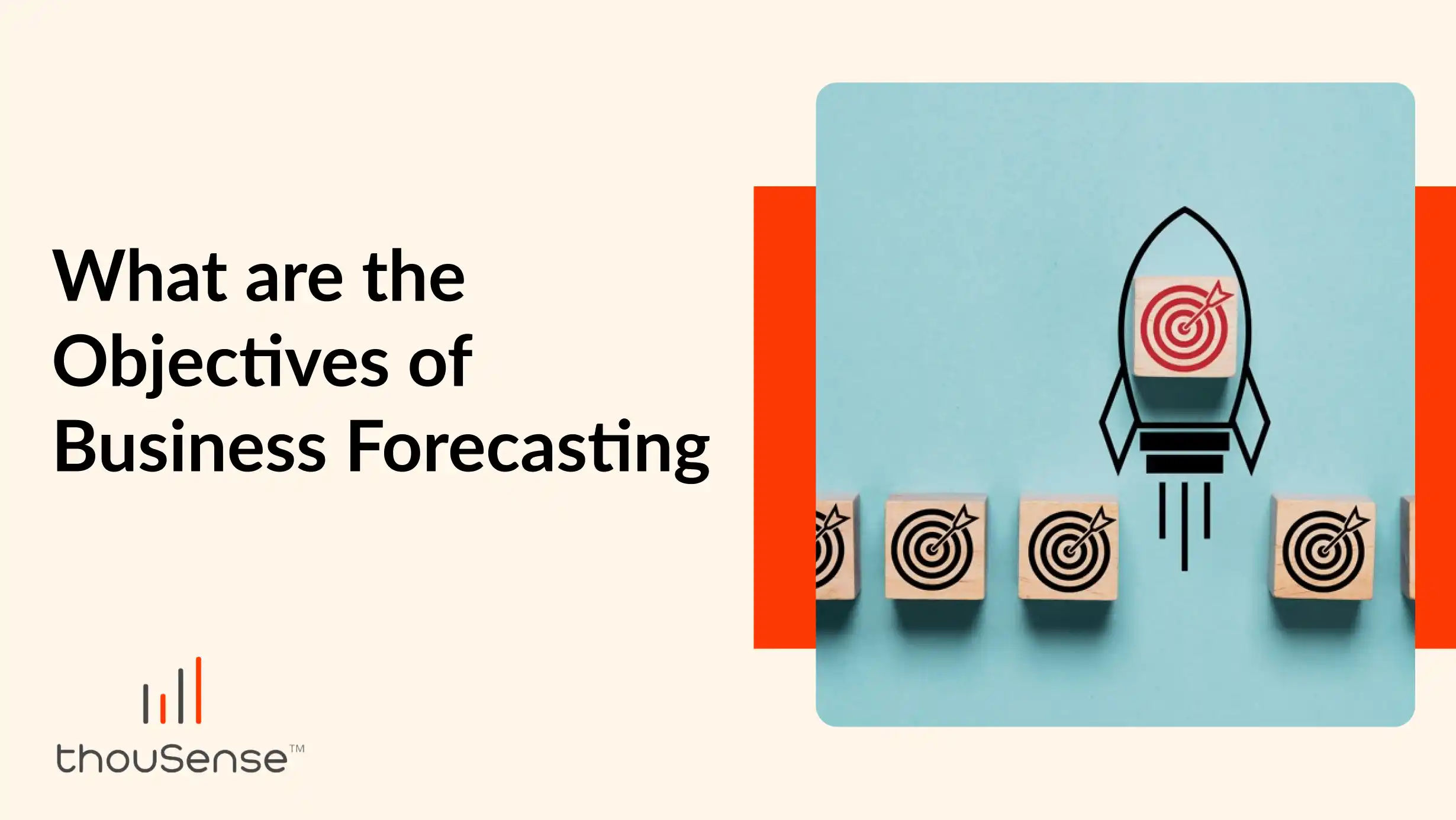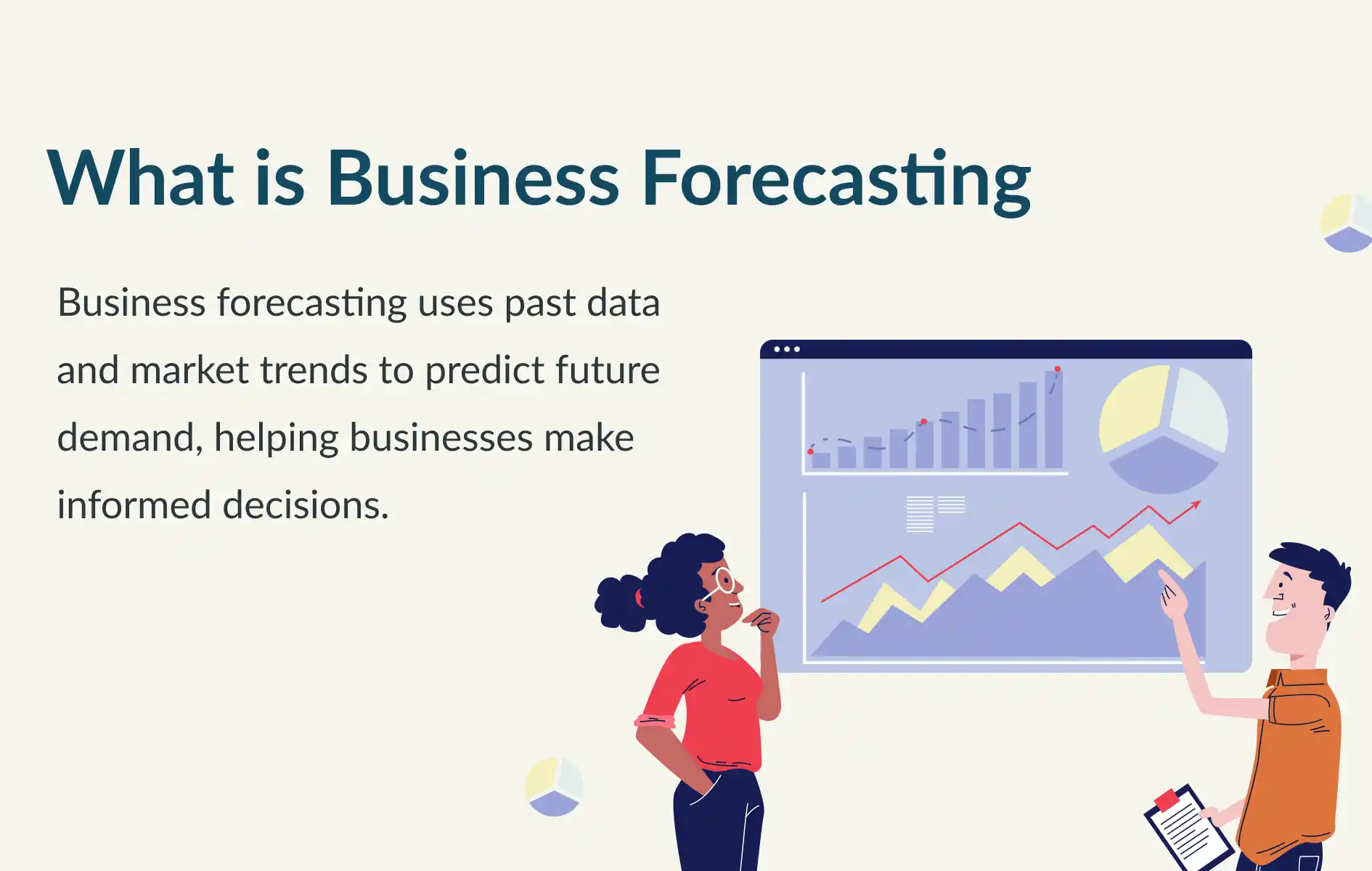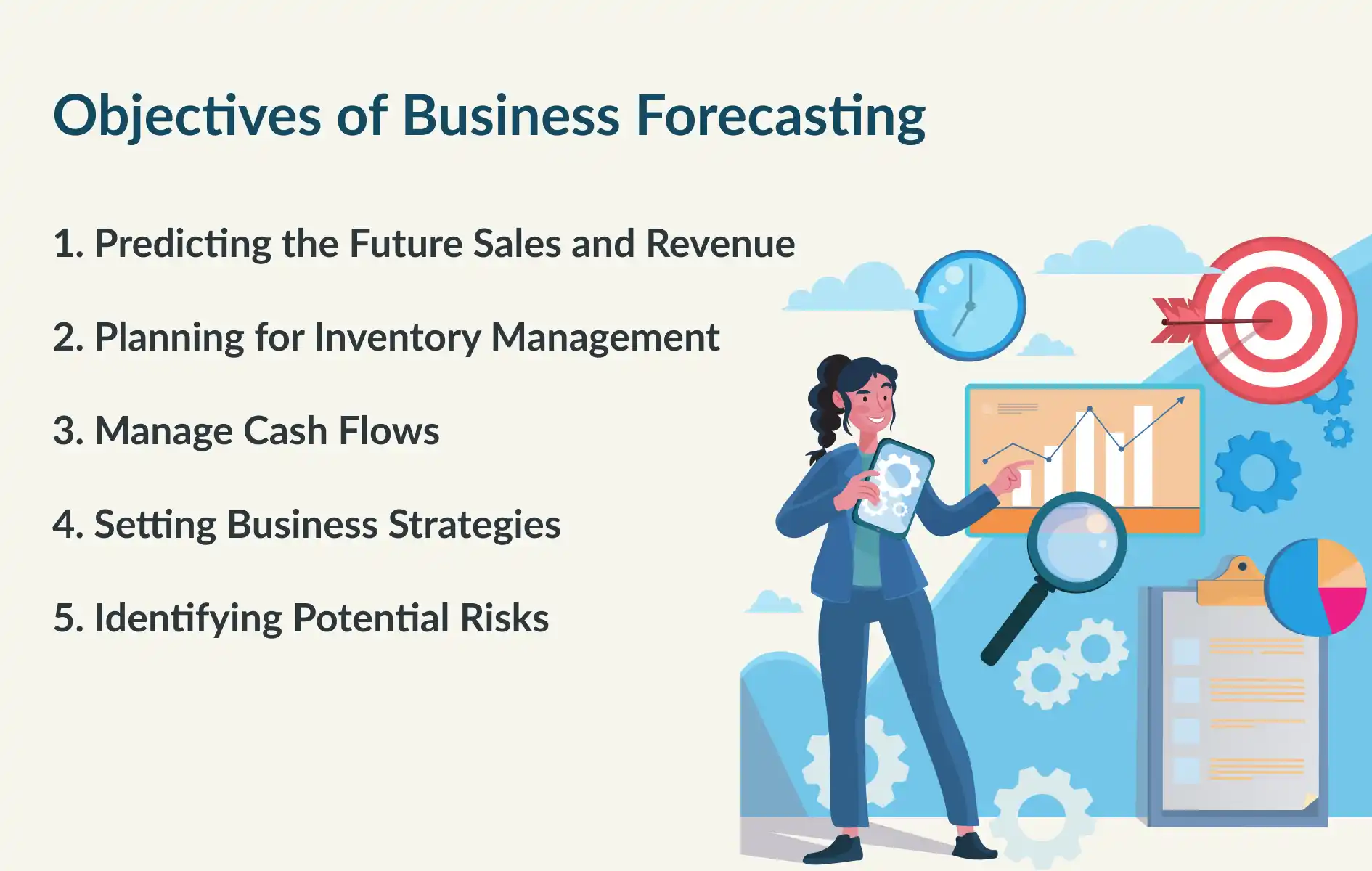What are the Objectives of Business Forecasting | thouSense

Businesses are one of the most dynamic assets of the financial world. In a world where things are constantly changing and evolving, companies need to keep up with these upcoming changes. People need to keep themselves updated with the help of business forecasting. This helps them in keeping updated with the ever-changing business dynamics.
Understanding Business Forecasting

Business forecasting, often referred to as demand forecasting, is a comprehensive process that requires analyzing historical data and evaluating current market conditions using advanced analytical techniques. This method enables organizations to predict future trends, helping stakeholders make informed decisions regarding upcoming business activities. By accurately forecasting demand, businesses can optimize resource allocation, enhance operational efficiency, and stay competitive in a dynamic marketplace.
Importance of Business Forecasting
Business forecasting plays a vital role across industries by enabling companies to anticipate future conditions and strategically allocate resources. By projecting future demand, businesses can better navigate opportunities and challenges, ensuring more efficient operations.
Depending on the business industry you are working in, people can get multiple benefits out of business forecasting.
● In various sectors, demand forecasting serves as an indispensable tool. For example, in retail, it helps determine optimal stock levels, preventing overstocking or understocking during peak periods. This not only improves inventory management but also enhances customer satisfaction by ensuring product availability when demand surges.
● Accurate forecasts are critical in sectors like manufacturing, where production schedules must align with anticipated demand. Proper capacity planning prevents both underutilization and overextension of resources, allowing manufacturers to operate efficiently and meet market demands on time.
● In financial services, forecasting is key to managing cash flows, optimizing investment returns, and assessing risks. By predicting market trends, financial institutions can maintain profitability and stability, making informed decisions about investments, risk mitigation, and resource allocation.
Business forecasting is a strategic necessity for any organization seeking sustainable success. By adopting industry-specific forecasting models, businesses can tailor their operations to meet customer demand effectively, unlocking growth opportunities and achieving long-term success.
5 Key Objectives of Business Forecasting
Several objectives of the business are served through the support of demand forecasting. Each objective of business forecasting has a certain function. It helps in supporting the better development of businesses.

1. Predicting the Future Sales and Revenue
Business forecasting is a crucial aspect of estimating future sales and revenues. Historical sales data and current market situations can predict demand trends easily.
With sales targets and resource allocation, businesses can predict their customer needs. Demand forecasting allows achieving over your potential customers. Accurate sales forecasts set realistic revenue targets, and team objectives while ensuring business growth.
2. Planning for Inventory Management
Another important objective for business management is to plan the inventories appropriately. Optimal inventory levels can be maintained by predicting the future demands of customers regarding a product or service.
Inventory management also helps in saving the excess costs that are required to maintain overstocked products. Moreover, stockouts can also lead to missed opportunities and lower customer satisfaction. Accurate inventory management contributes to optimal supply chain management with better operational efficiency.
3. Manage Cash Flows
Financial aspects of your business are an important task for overall smooth functioning. Managing cash flows is one of the most essential objectives of business forecasting. It plays a vital role in predicting the cash flows.
Appropriate cash flow helps businesses anticipate periods of surplus or deficit. It allows stakeholders to take proactive measures for financial stability. This helps companies avoid disruptions caused by unexpected cash crunches. Demand forecasting maintains consistent operations even during lean periods.
4. Setting Business Strategies
The fundamental objective of business forecasting is to set a realistic business strategy. It provides a clear understanding of market conditions with meaningful targets. People can form both long and short-term strategies according to the growing trends
5. Identifying Potential Risks
As market trends and potential strategies can be predicted through the help of demand forecasting, businesses can profit from them immensely. One can spot emerging risks and opportunities such as the rise or set of demands regarding a new product.
Demand forecasting helps in identifying risks such as declines or disruptions in the supply chain. By recognizing such issues beforehand, businesses can opt for proactive measures to navigate through the risks without having to handle a severe loss.
Practices for Effective Business Forecasting
Several objectives of business forecasting have to be made to form an accurate prediction of the market. Under such circumstances, developing technology has presented us with different options by leveraging artificial intelligence and machine learning.
Tools such as thouSense can process vast amounts of data immediately while identifying complex patterns that provide actionable insights. These measures cannot be taken easily through traditional methods and hence allow businesses to make more informed decisions with greater agility.
Conclusion
With the analysis of different objectives of business forecasting, organizations can navigate through the constantly changing dynamics of the business world. By predicting future sales, managing the inventories, and planning the cash flow, businesses can draft out more informed decisions that drive growth and profits.
FAQs
Q1. What is business forecasting?
The process of making informed decisions about the workings of a business by predicting market trends is considered business forecasting.
Q2. Why is sales forecasting important?
Sales forecasting is one of the important objectives of business forecasting that allows efficient inventory management and helps businesses solve the issue of under or over inventory stocking.
Q3. What are the objectives of business forecasting?
There are several objectives of business forecasting, some of them include predicting sales and revenue, managing an overall budget, and navigating through potential risks.